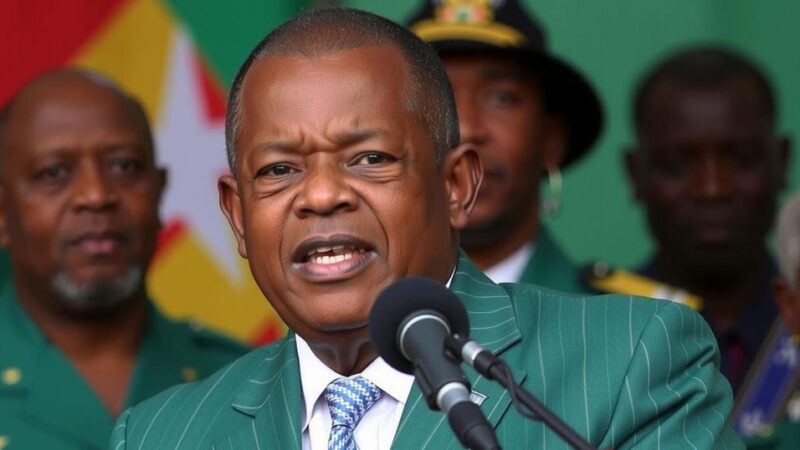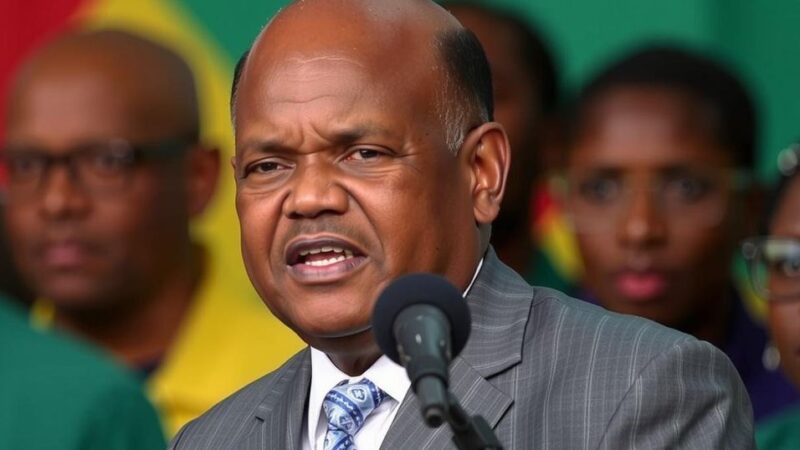Billionaire investor Ray Dalio expresses deep concerns about America’s political polarization post-election. At the Future Investment Initiative conference, he calls for reforms and unity between the Democratic and Republican parties. Although he views Donald Trump as more favorable for capital markets than Kamala Harris, he warns of increasing national debt and the risks posed by the current political climate. Dalio advises investors to include gold in diversifying their portfolios to mitigate risks.
Ray Dalio, the founder of Bridgewater Associates and a prominent billionaire investor, expresses profound concern regarding the political landscape of post-election America. During a recent address at the Future Investment Initiative conference in Saudi Arabia, he elaborated on the polarization between the Democratic and Republican parties, which he perceives as presenting significant challenges for the nation. Dalio articulated the necessity for reforms and highlighted the urgency of unifying disparate political factions. “Both of the candidates worry me,” Dalio stated during his remarks to CNBC. He emphasized the escalating tensions between the political extremes, advocating for the need to unite Americans and foster substantive reforms. Dalio criticized both presidential candidates for failing to embody the leadership necessary to bridge these divides. He noted an interesting observation regarding their economic policies, pointing out that Republican candidate Donald Trump exhibits a stronger capitalist inclination compared to his Democratic counterpart, Kamala Harris. Nevertheless, Dalio cautioned that either party could exacerbate the national deficit. As both candidates differ significantly in their proposed tax structures, Dalio warned that Trump’s focus on increasing tariff revenues could indeed lead to a surge in product prices depending on how these funds are reinvested into the economy. Furthermore, Dalio underscored the pressing issue of the increasing U.S. Treasury supply, particularly noting that approximately one-third of U.S. Treasurys are held by foreign investors, which could create a supply-demand imbalance with potential ramifications for domestic capital markets. “We have a real debt problem… Treasury market is basis of all capital formation,” Dalio elaborated, expressing concern that combined with internal conflicts, an economic downturn could bring about significant political and social unrest. He advised investors to consider gold as part of a diversified strategy to mitigate overall risks in their portfolios.
Ray Dalio’s commentary arises from the current socio-political environment in the United States, characterized by heightened polarization between political parties. As an influential investor and thought leader, Dalio’s insights reflect broader concerns regarding fiscal responsibility, governance, and the potential impacts on the economy amid fluctuating political ideologies. His emphasis on the necessity for substantial reforms and unity underscores the precarious balance that exists within U.S. political discourse, especially in the context of an approaching economic challenge.
In summary, Ray Dalio’s observations highlight critical concerns regarding the implications of the current political divide in the United States, particularly as it relates to economic stability and governance. His call for reform and unity among Americans serves as a significant reminder of the need for responsible leadership in addressing the challenges that lie ahead. With his endorsement of gold as a prudent investment strategy, Dalio provides guidance to investors seeking to navigate the potential turbulence within the financial landscape.
Original Source: www.cnbc.com







